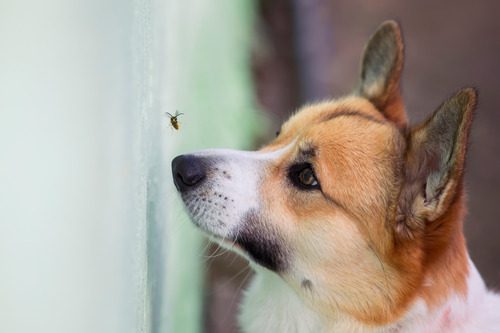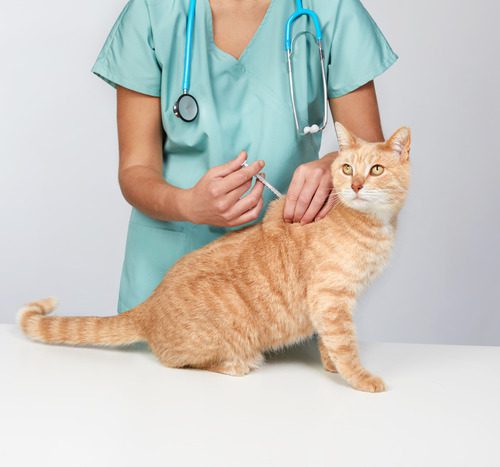When it comes to our beloved pets, their health and safety are always a top priority. As a responsible pet owner, knowing when to seek immediate veterinary care can be the difference between treating a minor issue and handling a serious emergency. This blog will guide you through various health signs indicating your pet may need to visit an emergency vet, including some less obvious symptoms that are often overlooked. Remember, in times of uncertainty, South Loop Animal Hospital in Chicago, IL is just a call away at (312) 753-5551 for advice and, if needed, emergency care during opening hours.
Recognizing Pet Emergency Symptoms
Emergency symptoms in pets range from the obvious to the not-so-obvious. In the below section, you’ll see some of the more obvious signs a pet is having an emergency. Following that, we’ll have a section that explores the more subtle indications of a possible pet emergency.
Sudden Changes in Behavior
When your pet displays sudden changes in behavior, it’s a signal that something might be wrong. Look out for signs like excessive lethargy, confusion, disorientation, aggression, or withdrawal. These changes could indicate pain, discomfort, or a deeper health issue that needs immediate attention.
Difficulty Breathing
Breathing issues in pets can escalate quickly and should never be ignored. If you notice your pet is struggling to breathe, coughing excessively, panting/gasping, or making wheezing sounds, it’s time to seek emergency care immediately.
Uncontrolled Bleeding
Bleeding that won’t stop or is coming from a deep wound is a clear sign of an emergency. While minor cuts and scrapes can often be handled at home, uncontrolled bleeding requires professional medical attention.
Subtler Signs of Pet Emergencies
Pet emergencies can sometimes start subtle. While we do not advocate perceiving every sign as a potential emergency, we do recommend letting us know what’s going on with your pet so we can help you figure out what you should do next. We might recommend coming in right away for treatment, going straight to the nearest emergency vet, or watching your pet for the next 24 hours and letting us know if anything has changed.
Changes in Eating or Drinking Habits
A sudden decrease or increase in appetite or water consumption can be a subtle sign of an underlying health issue. Changes in eating habits, especially when combined with weight loss or gain, should be taken seriously.
Unusual Restlessness or Lethargy
While it’s normal for pets to have lazy days or inactive periods, extreme changes in activity levels can be a cause for concern. Persistent lethargy or restlessness, especially if accompanied by other symptoms, warrants a visit to the vet.
Altered Bathroom Habits
Keep an eye on your pet’s bathroom habits. Issues like straining to urinate, frequent urination, diarrhea, or constipation can indicate health problems that require prompt veterinary care. Urinary or intestinal blockages can be life-threatening.
What to Do in a Pet Emergency
In any emergency, it’s vital to stay calm. Panicking can distress your pet further. Quickly but calmly assess the situation to understand the severity of your pet’s condition. If an emergency is taking place during our opening hours, call us at (312) 753-5551. If we are closed for the day, contact your nearest emergency vet or head straight there.
Prepare for Transportation
If you are advised to bring your pet in, make sure you have a safe way to transport them. Use a pet carrier for smaller animals and have someone help you with larger pets if possible.
Preventing Future Emergencies
Pet emergencies are thankfully rare, but you can still minimize your pet’s risk using the following tips.
Regular Vet Checkups
Regular checkups are essential for maintaining your pet’s health. These visits allow your vet to catch and address potential health issues before they can possibly grow into emergencies.
Know Your Pet
Understanding your pet’s normal behavior and habits is crucial. This knowledge will help you quickly notice when something is off, allowing for timely intervention. Taking photos or filming anything out of the ordinary with your pet can also help your veterinarian.
Create a Safe Environment
Ensure your home is safe for your pet. Remove potential hazards like toxic plants, open windows, or small objects that could be ingested.
When In Doubt, Call Us
Pet owners often know when something is off with their pets, but in times of uncertainty, it’s best to play it safe. If you have any concerns about your pet’s condition or need to make an appointment, call South Loop Animal Hospital at (312) 753-5551.







